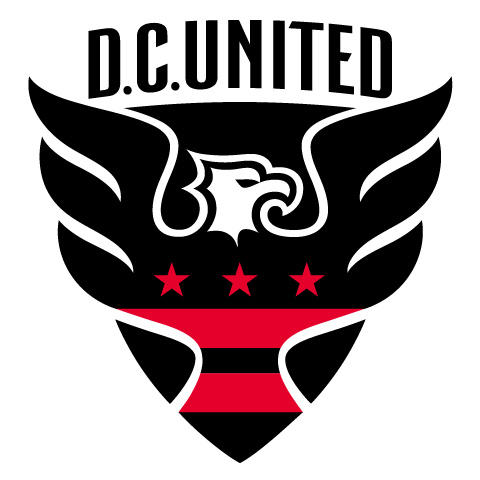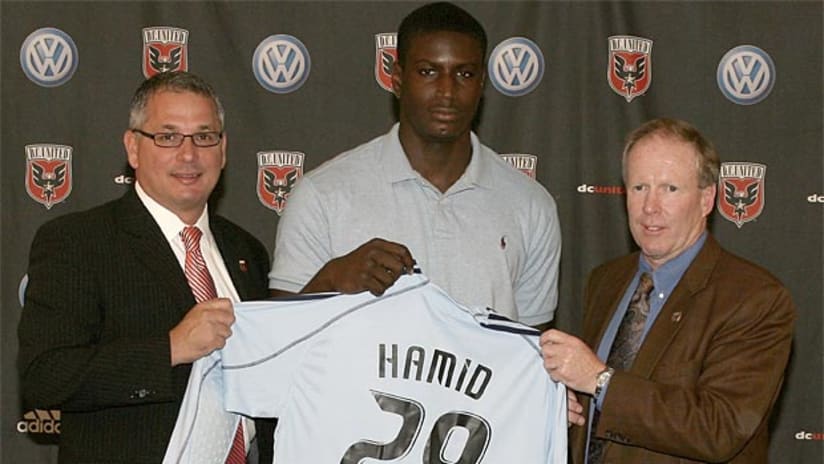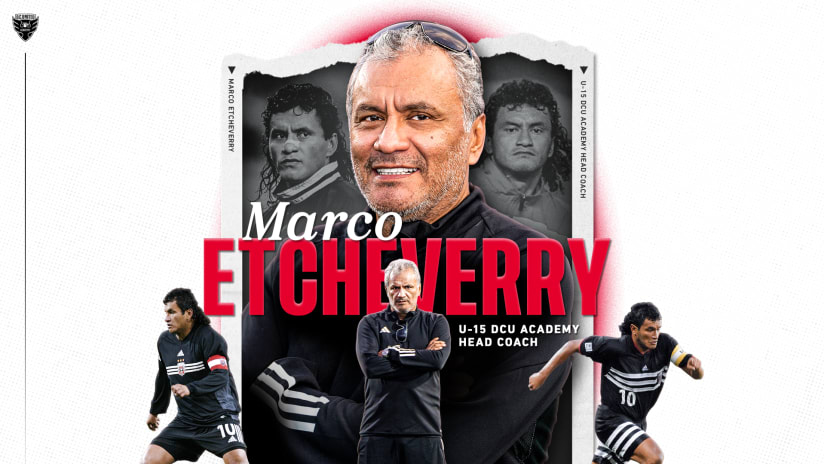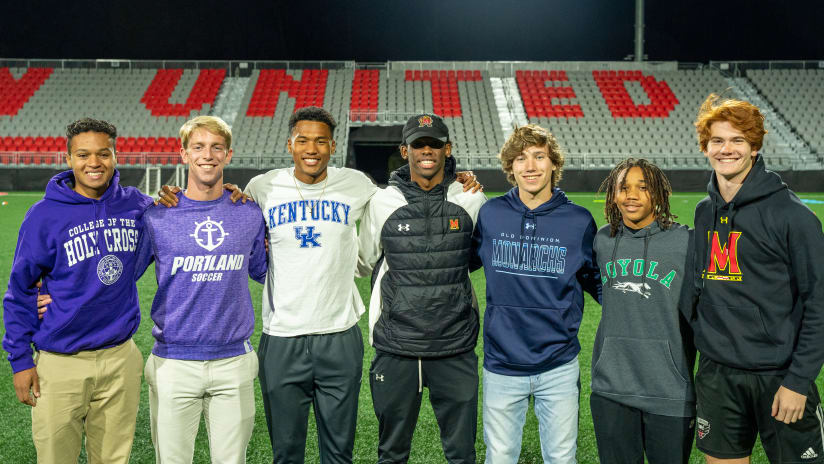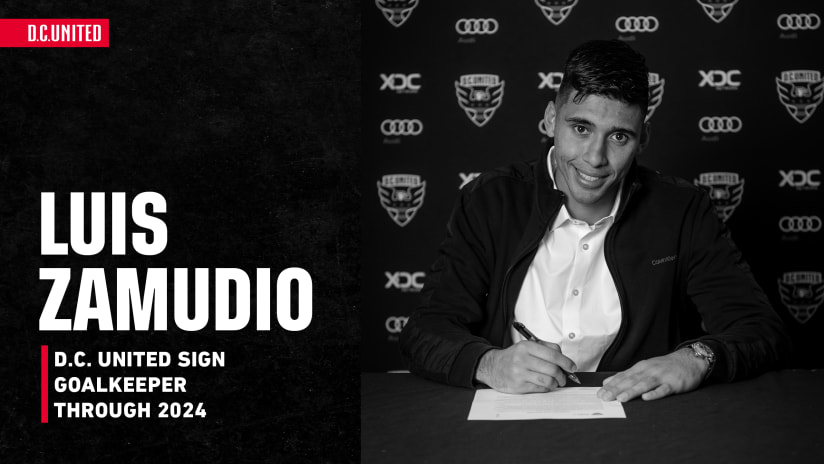D.C. United’s youth academy has made great strides since its founding in 2005, producing a long list of NCAA Division I talent and graduating several players on to the senior team. Even as the rest of Major League Soccer adopts similar programs, the club has kept ahead of the curve and positioned itself as a leading destination for the Washington, D.C. region’s most promising prospects.
But can this be sustained? Have United cranked up a legitimate production line, or are they just using their pro status to lure top local players? Amid the area’s crowded youth scene, the United Academy faces an ongoing challenge to maintain its current rate of success and meet the club’s goal of even greater contributions to the senior squad.
The following is part two of Potomac Soccer Wire’s in-depth conversation with United general manager Dave Kasper on this and other youth development topics. Part one ran last Friday and can be found here.
PSW: Could you talk a little about just how much United has invested in the youth academy?
DK: I can tell you that we’re making a large investment in our youth academy, and that investment is now paying off when you talk about Andy [Najar], Bill [Hamid] and Ethan [White], three guys in our first team who played two games last week, who contributed in a major way to first-team results last year. There’s no other academy in MLS who has that. That’s tremendous: three first team players. Four players, when you add [rookie] Perry [Kitchen], on the field who are under the age of 20 years old, starting for an MLS team. It’s terrific. So [the academy] is paying for itself.
PSW: How do you evaluate that specifically? Is the club crunching numbers or is it more esoteric?
DK: You know, not so much. We hope that the local soccer community will certainly be more supportive than they are, when they have players coming from our region, from our metropolitan area. Youth players that they can be proud of, that they saw growing up playing soccer, players that they certainly had a huge part in developing, and players that they support as professionals. So in terms of more people supporting this club, selling more tickets – that’s something that we think we’ll see, and we certainly hope we’ll see, down the line.
If a player is to be transferred down the line, certainly that transfer revenue will be reinvested back in the club in the form of allocation money. If it’s a large transfer, i.e. a Jozy Altidore [the U.S. striker who joined Spain’s Villarreal in a $10 million transfer in June 2008], some of that money can be reinvested back into the youth academy – facilities, in a number of ways. That’s a little more long-term, but the short-term objective was to develop players into the first team and that objective has been met.
PSW: Speaking of the local community, there seems to have been a bit of friction between United and some sectors of the Washington-area youth scene over the years – some bruised egos about players joining the D.C. youth academy, and so on.
DK: Yes, listen, I think that’s part of youth soccer, that’s part of youth sports a little bit. Certainly we want to have good relationships, we want to continue to improve relationships we have in the soccer community, to offer something back.
PSW: You just visited Holland, where there’s a clear concept of a “pyramid” where players ascend from youth to professional level in a structured fashion. We have something very different over here, don’t we? Much more chaotic.
DK: Well, certainly the amateur clubs, if you take Holland for example, are striving to develop talent that moves into the first team setup, the likes of an Ajax or PSV Eindhoven, a second-division club, whatever it may be – they’re striving to develop players to move into their local club. They take pride in that. Hopefully that’s something that we continue to cultivate and grow in our area as well.
PSW: Is there a perception of competition with area clubs? Does United’s academy have to prove something?
DK: In the [U.S. Soccer Development] Academy league, we’re competing with local clubs, so I think there’s some element of competition there. Healthy competition is a good thing.
PSW: You mentioned academy products like Bill Hamid and Andy Najar moving up to the senior team – do you see that continuing? How do you evaluate what’s a few players here and there, or a systematic creation?
DK: I think our goal would be to get a player every one or two years, in a cycle. With this last class, it’s been more than that, but certainly that would be our goal – if we can get one player moving into the first team every two years, every cycle, we’ll be pleased with that.
PSW: On one level, United’s academy is the fastest path to a professional career, but with the historical importance of the college scene, do you have to make a pitch to these youth players to get them to select United over playing college soccer?
DK: We don’t really want to make a pitch. We want to educate parents of their options, and the players of their options. Ethan White is a great example: he went to [the University of] Maryland and [head coach] Sasho [Cirovski] is a great developer of talent; Ethan went there and got a lot better, got a lot more ready to be a professional. So he benefited from that experience.
Each individual is different; some players need to develop a little bit physically, a little bit mentally, develop more in the game, and get away from home, mature a little bit. So it depends on the individual. But when we have conversations with parents about a potential opportunity [like] a Generation adidas contract, we want to make sure they understand the big picture. Certainly players like Bill and Andy are ready to transition into being a professional right after high school.
PSW: How do you compare academy products, college players and foreign signings? You’ve spoken before about the professionalism that foreign players contribute to MLS teams. Has that landscape shifted?
DK: We need to do both. We need to develop players in the academy, we need to continue looking for international players with experience who can come in here and make us a better team.
PSW: What are the priorities for developing some of those characteristics in our own players, for you as a club or maybe the country in general?
DK: I think that’s a longer-term process. I think that process starts with making our younger players better, starting at under-8, under-9, under-10. What can we do to make these kids better? Better technically, better tactically, smarter soccer players, so that, at least in the short term, when we get a player at Under-15, he’s a little bit more prepared to take the next step.
Again, that’s a challenge that all of us have in the soccer community: to train our players a little more efficiently, a little better, less emphasis on winning and more emphasis on developing a player who has a passion for the game, who learns to love the game, who thinks creatively, who’s technically good. To get there, to get to a Barcelona, who’s developing stars in their academy and into the first team, we have a ways to go. But even Barcelona relies on bringing in players.
PSW: United has spent plenty of money on foreign players over the years, essentially to add a dash of skill and sophistication to the team. How far off is the day when that need can be met domestically and that money gets plowed into the academy instead?
DK: When we have eight, nine academy players in the first team, week in and week out.
PSW: Everybody talks about how winning at youth level shouldn’t matter and that development has to be the focus, but how does that actually change?
DK: I certainly think that’s a lot more important in the younger age groups, say eight to 13, for example. It’s got to be a lot less important to them. But we’re a competitive society – it’s in our DNA as a society. It’s easy to say, and hard to do. Certainly with the younger age groups, though, we have to take a step back, and develop footballers. Once you get into the [Development] Academy, it’s about teaching kids to compete well, to go out and compete as a team. But it’s still equally important to continue to develop that soccer brain, develop the player technically, physically. Those are all very important.
PSW: Is it just having more time with the players? Or does something different need to happen on the training ground?
DK: I think [time] is part of it. Certainly tweaking our curriculum, continuing to develop “the D.C. United way,” is something that we’re doing on an ongoing basis. And having players more, for longer.
PSW: What are you looking for when you watch younger kids play? What traits matter for you?
DK: What matters to us is, are our kids playing the right way? Are we possessing the ball, do we have creative ideas on the field? Are we developing players who take risks in going forward and attacking? Versus, when I see the way some teams do it when they play against us: they drop back, play 4-5-1, play negative soccer, looking to – I don’t want to say destroy the game, but looking just to sit there and defend, as opposed to taking chances going forward. You know, defending is important, but defending a little higher up the field is important. Developing players who are comfortable on the ball – that is important to us.
PSW: When do you start evaluating the kids, as opposed to the academy coaching staff?
DK: When they’re under-16. We watch games and we listen – we get reports back from the coaches about players. We watch them play – if they’re doing really well and we’re happy with what we see, we bring them into the first team to train. That’s what we did with Bill, Ethan, Andy. So it’s a bit of a process.
PSW: What about before they enter your academy system? Many people are fascinated by this aspect – by Andy’s story, for example.
DK: Our youth coaches know what we’re looking for. We’re looking for talent, players who we think, by putting them into our environment, are going to excel and get better.
PSW: Finally, what advice would you give to a young player who wants to get into, and advance through, the United system?
DK: Yes , I think they have to first make the commitment that they want to be an elite soccer player. That means keeping themselves fit, eating right, that means being a student of the game. This is the information age: there’s so much access to soccer, on TV, on the internet. Reading about it, becoming a real student of the game – that, they need to do on their own.
Then playing as much as possible, working on their individual game in their backyard, playing street soccer with their friends. They need to do that. Then, obviously try to get on the best team possible, set goals for themselves as to where they want to be. To be a top class player is a real commitment and many sacrifices will have to be made. There's no other way.
Related:Q&A - PART 1
